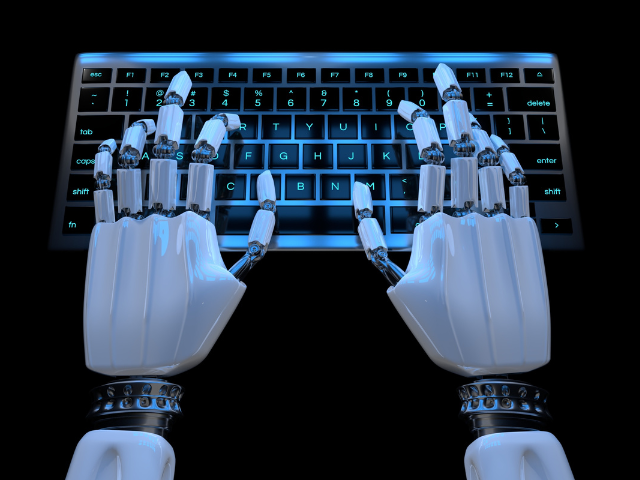2025 is shaping up to be the year of AI agents.
In October 2024, AI company Anthropic announced that its most recent model can use your computer for you.
On its website, the company said with the feature, “developers can direct Claude to use computers the way people do — by looking at a screen, moving a cursor, clicking buttons, and typing text.”
Anthropic is not the first company to develop an AI agent that can take over a computer to perform tasks. But it does offer some differences that could signal a big shift in the market.
The State of AI Agents: What Does It All Mean?
Looking beyond Anthropic’s offering, HyperWrite, an AI-powered writing tool, has had a functional agent for a while. The use cases and procedures are similar. However, where Claude differs is that it’s the first publicly usable AI Agent created by a massive AI company. Now, other organizations have joined the race to release their own agents.
Google is reportedly working on Project Jarvis, which involves developing an AI program that — like Claude’s and HyperWrite’s agents — control users’ computers for them.
OpenAI has also said it’s working on its own AI agents, and that they’ll be coming in 2025.
What does the rise of AI agents mean for colleges? What does it mean for the workforce?
Related Article: 5 AI Case Studies in Education
How Will AI Agents Change Learning?
The rise of autonomous and semi-autonomous will be tremendously important for colleges.
In the immediate future, these agents will be worrisome. They will make it harder for colleges to identify if students are doing the work necessary for learning and upskilling, or if they simply handed over control to a bot.
Consider this use of AI agents, mentioned by Leon Furze on LinkedIn:
I can feel professors either rolling their eyes or swearing. Imagine a student going into an AI program, then commanding the agent to go into the college’s Learning Management System, find any missing assignments and submit them.
In the long-term, AI agents will force colleges to rethink how courses are designed. What is the role of college (and of learning) when students have ready access to agents like this?
I ask that as an open question. It’s so new to me that I’m still wrapping my head around it.
Related Article: Beyond the Textbook: AI’s Overhaul of Teaching and Learning
Big Questions Loom Large for Colleges
As already mentioned, AI agents will make it harder and harder for colleges to figure out what hand students play in their final assignments.
This reflects what is happening in industry and, indeed, society at large.
How do colleges move forward?
On a course-level, colleges will need to focus less on the products students hand in and more on the process they go through. I suspect we’ll also see more reliance on portfolios and project-based learning assignments in the future.
And even these will not be agent-proof.
In fact, at this point, it’s hard to even imagine what an agent-proof assignment would look like, or if it’s possible. Maybe those won’t exist.
On an institutional level, AI agents have spurred even bigger questions for colleges:
- How can colleges restructure their offerings to prepare students for this world?
- How can colleges work with companies to figure out what skills are necessary right now? What are the “human skills” needed by graduates?
- How can colleges revamp online courses to account for the rise of AI agents?
In the near future, these questions will come into greater focus.
If colleges want to continue serving their students and preparing them for the workplace, they’ll need to think seriously about what this development means for the future of learning and upskilling.
Learn how you can join our contributor community.
